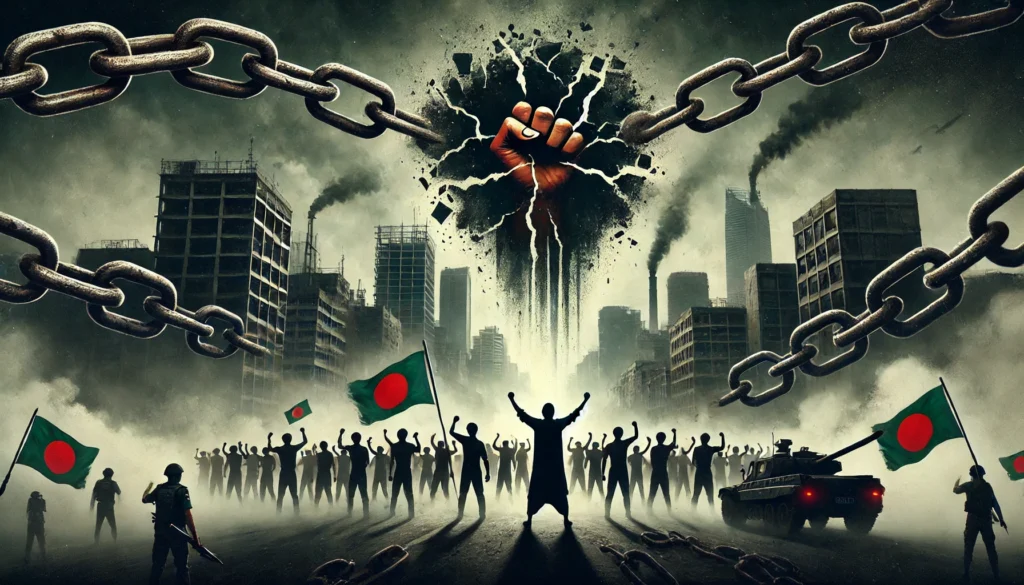
In August 2024, Bangladesh underwent a significant political upheaval that led to the resignation and departure of Prime Minister Sheikh Hasina, followed by the establishment of an interim government backed by the military. While the military claimed to protect civil rights during this transition, evidence suggests that their actions have, in fact, undermined these rights, exacerbating the nation’s turmoil.
The Fall of Sheikh Hasina’s Government
The unrest began in July 2024 with student-led protests against a controversial government job quota scheme. Initially peaceful, these demonstrations escalated into broader anti-government protests due to a harsh crackdown by authorities. On August 5, protesters defied a military-imposed curfew and stormed Hasina’s residence, prompting her to flee the country. The military’s refusal to intervene during this critical moment effectively sealed her fate.
Establishment of the Interim Government
Following Hasina’s departure, Army Chief General Waker-Uz-Zaman announced the formation of an interim government, pledging to hold early elections and return to civilian rule. Nobel laureate Muhammad Yunus was appointed to lead this interim administration, which took office on August 8, 2024.
Military’s Role in Human Rights Violations
Despite assurances to protect civil rights, the military’s actions during and after the transition have raised serious concerns:
• Crackdown on Protests: The United Nations Human Rights Office estimated that up to 1,400 people were killed in a three-week crackdown on student-led protests between July and August 2024. Security forces, including the military, were accused of severe human rights violations, such as summary executions and shooting unarmed protesters, with children accounting for approximately 12-13% of the deaths.
• Enforced Disappearances: Under the previous administration, nearly 600 people were forcibly disappeared since 2009, with 86 cases still unsolved. Many victims have come forward seeking justice, recounting severe torture during their detention. These illegal facilities were reportedly run by the Directorate General of Forces Intelligence (DGFI), headed by a Major General of the Bangladesh Army.
• Suppression of Opposition: Security forces carried out mass arrests of opposition members, with the main opposition party estimating that half of its 5 million members faced politically motivated prosecution. Leaked meeting minutes indicated plans by senior police officials to ensure convictions of opposition members to disqualify them from contesting elections.
International Response
The international community has expressed deep concern over these developments:
• United Nations Investigation: At the invitation of the interim government, the UN Human Rights Office dispatched a fact-finding mission to Bangladesh to investigate alleged human rights violations during the protests. The investigation suggested that actions by security forces could amount to crimes against humanity.
• Amnesty International’s Stance: Following the announcement of the interim government, Amnesty International emphasized the need for the new administration to prioritize human rights and avoid repeating past mistakes.
The military’s involvement in Bangladesh’s political transition, under the pretext of safeguarding civil rights, has been marred by actions that contradict this claim. The documented human rights violations, including lethal crackdowns on protesters, enforced disappearances, and suppression of political opposition, highlight a pattern of the military working against the interests of the Bangladeshi people. As the nation moves forward, it is imperative for the interim government to address these issues transparently and uphold the fundamental rights of its citizens.
17md9q